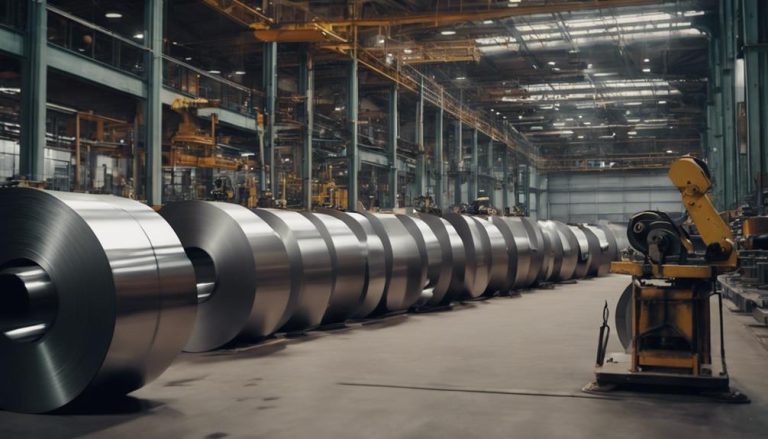From Supplier to User: Navigating the Supply Chain of Steel Coils

The supply chain of stainless-steel coils, from their manufacturing to their final destination, is a complex process that involves multiple stakeholders. Understanding this journey is crucial for both manufacturers and users of steel coils. In this article, we will explore the various stages of the supply chain, highlighting the roles of manufacturers, suppliers, and the different types of steel coils available.
Manufacturing of Steel Coils
Steel coils are produced through a series of manufacturing processes. Steel coils manufacturers play a vital role in this stage, where raw materials, such as iron ore and carbon, are transformed into high-quality coils. These manufacturers utilize advanced machinery and techniques to ensure the production of stainless-steel coils that meet the industry’s stringent standards.
Suppliers and Distribution
Once the steel coils are manufactured, they are typically sold and distributed through a network of steel coils suppliers. These suppliers act as intermediaries between the manufacturers and the end-users. They have expertise in logistics, warehousing, and transportation, ensuring a smooth flow of steel coils from the manufacturing plant to the end-users.
Types of Steel Coils
Steel coils come in different varieties, each designed to meet specific requirements. The two primary types are hot rolled steel coils and cold rolled steel coils.
Hot rolled steel coils are produced by heating the steel slabs above their recrystallization temperature and then passing them through a series of rollers. This process results in coils with a rough surface and a larger thickness range. Hot rolled coils are commonly used in applications that do not require high precision, such as construction and automotive manufacturing.
On the other hand, cold rolled steel coils undergo additional processing steps. The steel is first rolled at room temperature, followed by annealing and pickling processes to improve the surface finish and dimensional accuracy. Cold rolled coils are widely used in industries that demand precise dimensions and a smooth surface, including appliances, electrical equipment, and automotive components.
Weight Considerations
Steel coils weight is an important factor to consider throughout the supply chain. Manufacturers, suppliers, and users need to take into account the weight of coils for transportation, handling, and storage purposes. The weight of steel coils varies depending on factors such as coil width, thickness, and the type of steel used. It is essential for all stakeholders to accurately calculate and communicate the weight to ensure safe and efficient operations.
Supply Chain Challenges and Solutions
The supply chain of steel coils faces various challenges, including transportation logistics, quality control, and lead time management. Manufacturers and suppliers need to address these challenges to maintain a seamless flow of products.
One way to tackle these challenges is through the implementation of advanced supply chain management systems. These systems provide real-time visibility, enabling manufacturers and suppliers to track the movement of steel coils, optimize inventory levels, and streamline communication with stakeholders. By leveraging technology, the supply chain becomes more efficient, reducing costs and improving overall customer satisfaction.
Conclusion
Navigating the supply chain of steel coils, from manufacturing to the end-user, involves a series of interconnected steps. Manufacturers, Steel Coils Suppliers, and end-users all play crucial roles in ensuring the smooth flow of these essential products. By understanding the manufacturing process, the types of steel coils available, and the weight considerations, stakeholders can make informed decisions and effectively manage their supply chain. Embracing advanced supply chain management systems can further enhance efficiency and drive success in this dynamic industry.
Remember, whether you are a manufacturer, supplier, or end-user, having a comprehensive understanding of the supply chain of steel coils empowers you to make informed decisions and optimize your operations.


